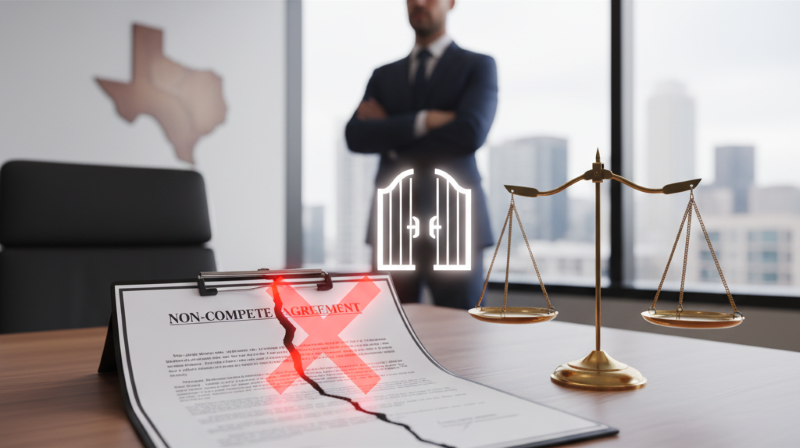
The Public Policy Behind the Ban
In Texas, non-compete agreements for lawyers are not legally enforceable. This is not primarily to protect the lawyer, but rather to protect the public and the client's right to choose their legal representation. The Texas Disciplinary Rules of Professional Conduct, specifically Rule 5.06(a), states that a lawyer shall not participate in offering or making a partnership or employment agreement that restricts the rights of a lawyer to practice after the termination of the relationship. This rule ensures that a client's relationship with their lawyer is not severed simply because the lawyer leaves a firm. It upholds the principle that clients should have the freedom to follow the lawyer they trust.
Non Competes Generally in Texas
While there are special rules for lawyers and physicians, non-compete agreements in Texas are generally enforceable if they are reasonable in scope, duration, and geographical area, and are supported by valid consideration. However, the courts scrutinize these agreements carefully to ensure they do not create an undue hardship on the employee or violate public policy. The enforceability often hinges on specific details of the agreement and the nature of the employment.
The Right Perspective: Branding and Success
A law firm should want its departing attorneys to succeed. A firm that has a reputation for producing successful attorneys can attract higher-quality talent. When potential new hires see that past employees have gone on to be successful—whether they've started their own firms, become in-house counsel, or joined other firms—it reflects well on the original firm. This makes the firm more attractive as a starting point for a legal career, creating a cycle of positive branding and recruitment. Therefore, even though the legal system prevents firms from enforcing non-competes, a firm's own business interests may align with its former lawyers' success.
All information provided on Silblawfirm.com (hereinafter "website") is provided for informational purposes only, and is not intended to be used for legal advice. Users of this website should not take any actions or refrain from taking any actions based upon content or information on this website. Users of this site should contact a licensed Texas attorney for a full and complete review of their legal issues.
